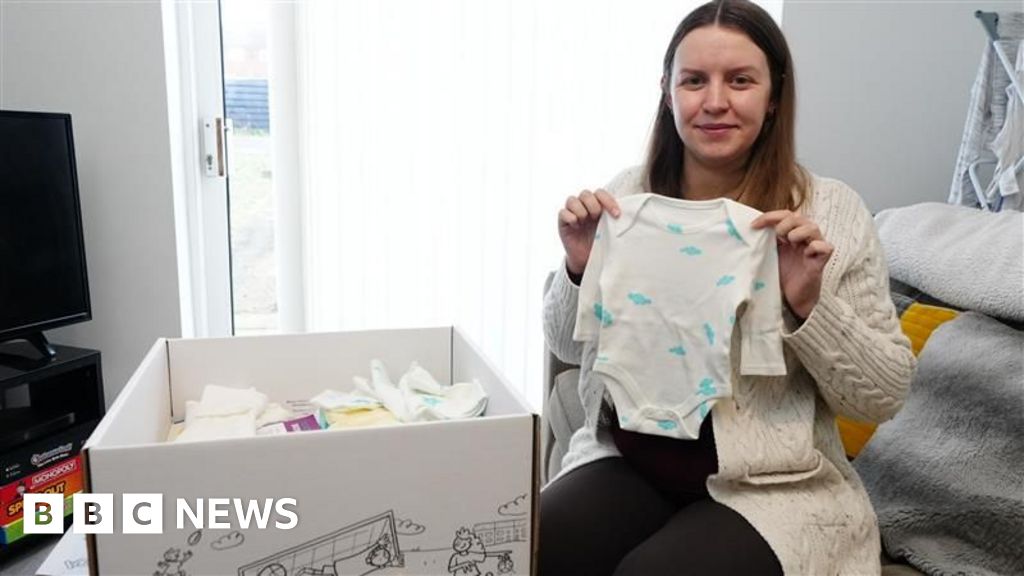Business
This Is Nepal’s Only Billionaire, His Noodles Brand Is A Sleeper Hit In India

Last Updated:
According to Forbes, his 2023 wealth is $1.8 billion. While smaller than Elon Musk or Mukesh Ambani, it’s a remarkable feat for a small country like Nepal

His business acumen led him to partner with global brands like Suzuki and Panasonic. (News18 Hindi)
In the heart of the Himalayas, Nepal’s only billionaire, has built a fortune of $1.8 billion (around Rs 15,000 crore), showcasing a remarkable journey of entrepreneurship.
At 69, Binod Chaudhary, chairman of Chaudhary Group (CG Corp Global), has built a formidable empire of 136 companies, from ‘Wai Wai’ noodles to Taj Hotels, spanning sectors like banking, hotels, FMCG, energy, education, and health.
Born into a Marwari family in Kathmandu, Chaudhary’s roots trace back to Rajasthan, India. His grandfather migrated to Nepal and laid the foundation of their business legacy. His father then opened Nepal’s first departmental store, a significant achievement at the time.
Although Chaudhary was expected to take over the family business, he initially aspired to become a chartered accountant and began his studies in India. However, he had to return home at the age of 18 due to his father’s illness, leaving his academic pursuits behind and entering the business world.
From Disco To ‘Wai Wai’
Chaudhary’s journey into entrepreneurship began with opening Nepal‘s most famous disco in Kathmandu in 1973, which quickly became a youth hotspot.
In 1984, Chaudhary launched ‘Wai Wai’ noodles, now a staple in kitchens across India and Nepal, especially loved by children and adults in North and Northeast India
His business acumen led him to partner with global brands like Suzuki and Panasonic, further bolstering his ventures.
Nabil Bank To Taj Hotels
In 1995, Binod Chaudhary made a strategic move by acquiring a controlling stake in Nabil Bank from the Dubai government, which has since become Nepal’s leading bank. His most successful endeavour, however, lies in the hospitality sector. Chaudhary Group boasts 143 hotels, including several 5-star establishments in collaboration with India’s renowned Taj Hotels, spread across Nepal, India, and Sri Lanka, epitomising luxury.
Empire Of 136 Companies
Chaudhary Group’s influence extends far beyond noodles and hotels. It encompasses sectors such as banking, real estate, telecom, energy, education, and health, with projects ranging from power initiatives in Nepal to electronics in India.
According to Forbes, Binod Chaudhary’s wealth in 2023 was $1.8 billion. Although this is modest compared to giants like Elon Musk ($247 billion) or Mukesh Ambani ($107.1 billion), it is a significant achievement for a small country like Nepal.
Bollywood Dreams, Tata-Mandela Inspiration
Chaudhary is an ardent fan of Bollywood, particularly of Amitabh Bachchan’s films. He draws inspiration from JRD Tata, who revolutionised Indian business, and Nelson Mandela, who demonstrated the power of change. Besides being a successful businessman, Chaudhary serves as a Member of Parliament in Nepal, adding another dimension to his illustrious career.
Sons Take The Helm
At 69, Binod Chaudhary has entrusted the future of Chaudhary Group to his three sons, Nirvan, Rahul, and Varun, who are poised to elevate the business further, ensuring the continued success of ‘Wai Wai’ and Taj Hotels.
September 09, 2025, 19:24 IST
Read More
Business
Free baby bundles sent to newborn parents but some miss out

Baby boxes are being delivered to expectant families in some of Wales’ most deprived areas.
Source link
Business
Investors suffer a big blow, Bitcoin price suddenly drops – SUCH TV

After the drop in gold price, Bitcoin price also fell.
Bitcoin fell below $77,000 in the global market, Bitcoin price fell by more than 13% in a week.
Bitcoin’s highest price in 6 months fell below $126,000, Bitcoin price has dropped by more than $49,000.
Business
Post-Budget Session: Bulls Push Sensex Up By Over 900 Points, Nifty Reclaims 25,000

Last Updated:
The BSE Sensex is trading higher by 371 points, or 0.47%, at 81,090.24, while the NSE Nifty rises by 70 points to trade above 24,850 at 24,889.25.

Stock Market Today.
Market Updates Today: A day after the market crash following the Budget’s provision to hike Securities Transaction Tax (STT), the domestic equity market on Monday saw heightened volatility. After opening nearly flat, the NSE Nifty rose to the day’s high, then touched the day’s low before sharply recovering to trade at the day’s high of 25,093.
As of 3:16 pm, the BSE Sensex surged by 932 points, or up 1.13%, to 81,641.87 in the afternoon trade and the NSE Nifty rose by 267 points, or up 1.07%, to trade above 25,000 at 25,093.27. After opening nearly flat, the NSE Nifty rose to the day’s high, then touched the day’s low before sharply recovering to trade at the day’s high of 25,093.27.
Among the 30 Sensex shares, 25 stocks were trading in the green. Among the top gainers were PowerGrid, Adani Ports, BEL, Reliance, Mahindra & Mahindra, Larsen & Toubro, and IndiGo, rising by up to 7.91%. The laggards were Axis Bank, Infosys, Titan, TCS, and Trent, falling by up to 1.97%.
After opening nearly flat, at around 9:30 am, the BSE Sensex jumped by 350 points to 81,112.03 in the opening trade, while the NSE Nifty rose 91 points to trade above the 24,900 level at 24,910.85. However, the benchmarks gave up all gains and declined to day’s low amid heavy volatility.
Aakash Shah, technical research analyst at Choice Equity Broking Private Ltd, said, “Near-term sentiment remains cautious despite some support from domestic technical indicators. The broader market direction will largely be influenced by global equity cues, crude oil price movements, and institutional fund flows.”
On Sunday, the Nifty saw an aggressive sell-off after the Budget 2026 announcement to hike STT, plunging nearly 870 points from 25,440 to an intraday low of 24,571, before staging a partial recovery to close at 24,825.
“A strong bearish candle was formed, with the index closing decisively below the 200-day EMA, indicating a deterioration in trend strength. Immediate resistance is placed at 24,950–25,000, while key support lies in the 24,650-24,700 zone. The RSI slipped to 31, reflecting oversold conditions, while India VIX surged 10.73% to 15.09, highlighting elevated market volatility,” Shah said.
On Sunday, February 1, foreign institutional investors (FIIs) sold equities worth Rs 588 crore, while domestic institutional investors (DIIs) also remained net sellers, offloading shares worth Rs 682 crore, adding to the pressure on the market.
V K Vijayakumar, chief investment strategist at Geojit Investments Ltd, said, “Yesterday’s market selloff resulting in 495 point crash in Nifty was a knee-jerk reaction to the sharp increase in STT on F&O trades. This was not a revenue-raising measure, but a decision to discourage retail traders from complex F&O trading, in which 92% of them were losing money. This decision is in the interest of retail investors. But this decision impacted the market sentiments, which were already impacted by the decision to make no changes in the LTCGs tax, which a section of the market was expecting rather unrealistically.”
It is important to understand that the Budget is a growth-oriented Budget with fiscal prudence. The 10% nominal GDP growth projected in the Budget is achievable and has the potential to deliver around 15% earnings growth in FY27. The market will soon start discounting this positive. But it is possible that FIIs may continue to sell impacting the market. Retail investors should keep their cool and remain invested and continue to invest systematically. A significant upturn in the market may take time; perhaps a retreat from AI trade globally. We don’t know when this will happen. But we know that an earnings rebound is imminent in response to this growth oriented Budget. That is a clear positive, he added.
February 02, 2026, 09:34 IST
Read More
-

 Sports6 days ago
Sports6 days agoPSL 11: Local players’ category renewals unveiled ahead of auction
-

 Entertainment6 days ago
Entertainment6 days agoClaire Danes reveals how she reacted to pregnancy at 44
-

 Business6 days ago
Business6 days agoBanking services disrupted as bank employees go on nationwide strike demanding five-day work week
-

 Tech1 week ago
Tech1 week agoICE Asks Companies About ‘Ad Tech and Big Data’ Tools It Could Use in Investigations
-

 Fashion1 week ago
Fashion1 week agoSpain’s apparel imports up 7.10% in Jan-Oct as sourcing realigns
-

 Sports6 days ago
Sports6 days agoCollege football’s top 100 games of the 2025 season
-

 Politics1 week ago
Politics1 week agoFresh protests after man shot dead in Minneapolis operation
-

 Politics6 days ago
Politics6 days agoTrump vows to ‘de-escalate’ after Minneapolis shootings





